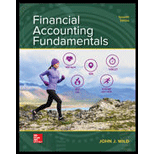
Concept explainers
Journal Entries:
Journal entries are the transactions of quantitative nature that are made in the books of accounts to record every transaction that happens in the business in the chronological order.
Accounting rules for journal entries:
- To increase balance of the account: Debit assets, expenses, losses and credit all liabilities, capital, revenue and gains.
- To decrease balance of the account: Credit assets, expenses, losses and debit all liabilities, capital, revenue and gains.
Bank reconciliation:
A procedure through which difference between bank balance provided in the bank statement and bank balance appearing in the books of account, is being ascertained at a particular point of time of a company is known as bank reconciliation
1.
To prepare: Bank reconciliation of S Company as at December 31, 2017.
2.
To prepare: Journal entries to bring the company’s book balance of cash into conformity with the reconciled cash balance as of December 31, 2017.
3.
To explain: Nature of communications conveyed by the bank when bank sends the depositor (a) a debit memorandum and (b) a credit memorandum.
Want to see the full answer?
Check out a sample textbook solution
Chapter 6 Solutions
FINANCIAL ACCT.FUND.(LOOSELEAF)
 Financial And Managerial AccountingAccountingISBN:9781337902663Author:WARREN, Carl S.Publisher:Cengage Learning,
Financial And Managerial AccountingAccountingISBN:9781337902663Author:WARREN, Carl S.Publisher:Cengage Learning, Financial Accounting: The Impact on Decision Make...AccountingISBN:9781305654174Author:Gary A. Porter, Curtis L. NortonPublisher:Cengage Learning
Financial Accounting: The Impact on Decision Make...AccountingISBN:9781305654174Author:Gary A. Porter, Curtis L. NortonPublisher:Cengage Learning Survey of Accounting (Accounting I)AccountingISBN:9781305961883Author:Carl WarrenPublisher:Cengage Learning
Survey of Accounting (Accounting I)AccountingISBN:9781305961883Author:Carl WarrenPublisher:Cengage Learning Intermediate Accounting: Reporting And AnalysisAccountingISBN:9781337788281Author:James M. Wahlen, Jefferson P. Jones, Donald PagachPublisher:Cengage LearningPrinciples of Accounting Volume 1AccountingISBN:9781947172685Author:OpenStaxPublisher:OpenStax College
Intermediate Accounting: Reporting And AnalysisAccountingISBN:9781337788281Author:James M. Wahlen, Jefferson P. Jones, Donald PagachPublisher:Cengage LearningPrinciples of Accounting Volume 1AccountingISBN:9781947172685Author:OpenStaxPublisher:OpenStax College





